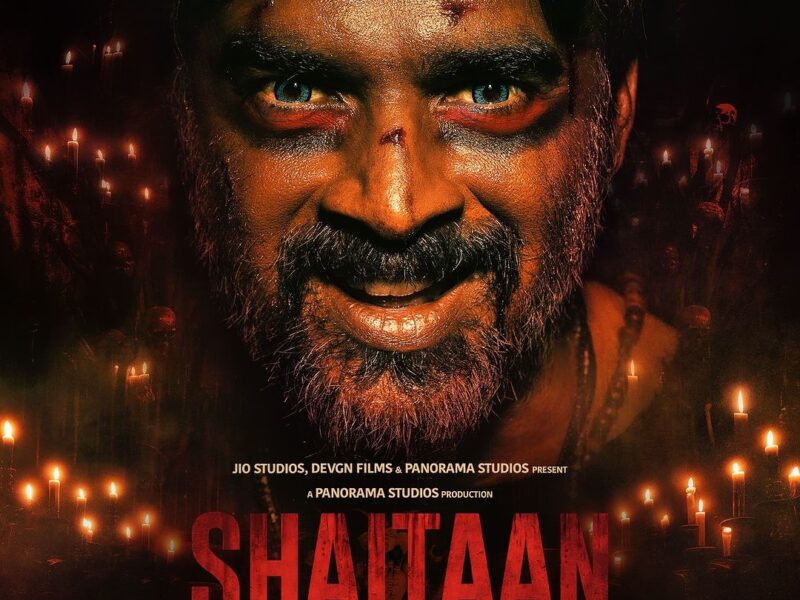
‘
Ranbir Kapoor’s film Animal: What’s Good, What’s Bad?
The movie “Animal,” starring Ranbir Kapoor and Rashmika Mandanna, In addition to Anil Kapoor, Bobby Deol, Tripti, Babloo Prithiveeraj, Shakti Kapoor, Prem Chopra, Suresh Oberoi, Ravi Gupta, and others, the film is directed by Sandeep Reddy Vanga.
Hello. This is a review of the Animal film.
a movie that doesn’t express anything and isn’t very entertaining. The opposite of a teenage hormonal tantrum in a film
As you may have guessed from the trailer, Ranbir Kapoor plays Ranvijay, a man who has everything money can buy—all except the affection and care of his father. Again, his mother, who is still alive and just sits around looking depressed, is irrelevant; all Vijay wants is to be able to celebrate his father Balbir’s birthdays with him. Forget about his poor mother supporting his bad behavior. When this love is denied to Vijay, he gradually transforms into an “animal” with unbridled instincts that act on every bothersome thought that crosses his manly mind. Furthermore, nothing Vijay does—not even outright mass murder—has any legal repercussions because Balbir is the richest man in India, or among the richest men in India. There is no law enforcement in the world of Balbir and Vijay.
I tried to figure out why flashbacks are used in the film. In the opening scene, a prosthetically aged Ranbir Kapoor tells a group of men a silly tale about a monkey in the jungle in the year 2056. Similar to this scene, a large portion of Animal’s screenplay consists of graphic sequences that are included only for shock value. Masculinity for the sake of masculinity, violence for the sake of violence, and masculinity only because one can Without even the slightest awareness, Vijay tells his wife in a scene, “Unfortunately, it’s a man’s world.” You don’t need to inform us again.
The movie uses as many gunshots and murders as possible to show that it is set in a world where men rule. This is not a lament, in the vein of Nikhil Nagesh Bhatt’s ultraviolent TIFF premiere Kill, wherein violence is presented as a means of illustrating the clichés associated with masculinity—that is, of using your manhood as a crutch in times of need, the one thing that gives you an automatic advantage in life regardless of social standing. In KILL, Raghav Juyal and his men commit train murders because they have no other choice but to amass wealth inside a system that does not suit them. Vijay is violent in Animal because no one scheduled a psychological assessment for him when he was a teenager. Using swords, axes, and guns, men in this horror film defend their families’ honor as true men; many connections to the penis and body hair serve to emphasize this claim.
Anil Kapoor portrays Balbir, a businessman so consumed with building his empire that, when he discovers his son has been physically abused by a teacher at school, he doesn’t even seem to care or take action. As you may already know, the actor is excellent at what he does, particularly in the scream-filled sequences where he tries to raise his awful child. Apart from this, though, the character is merely the ball in a screenplay that is desperately trying to find some rationale for the protagonist’s anger that would allow it to be interpreted as murderous. When Balbir isn’t screaming job traditions like “I manage a company across three time zones,” he’s sitting behind a desk in an office, quietly fuming and letting his children scold him, occasionally assuaging his conscience with an “I disagree with your approach.”

A sort of fourth wall breaks as Ranbir Kapoor enters the picture, interrupting yet another wedding with yet another awkward song performance, reminding you how many times you’ve seen the actor do this. It’s as if it can read our thoughts, and then it says, “AHA! Do you believe you know Ranbir Haian? Let me now demonstrate something that would have shocked even your most imaginative mind. And that’s basically what Animal is all about. It’s meant to rile up “snowflakes” and vociferous critics of Vanga’s previous film, Kabir Singh, by carefully highlighting criticism of that picture and adding a slight twist. So you were upset that men cheered when Kabir hit Preeti?
When discussing Vijay’s misogyny, indeed, he will never slap his wife, Geentanjali, played by Rashmika, but she will slap him. Oh, you objected to Kabir’s denigration of Preeti? Observe the self-debasement of Geetanjali. It appears as though Vijay imagines himself to be a Napoleonic ruler. In a scene found in BOTH of Ridley Scott’s Napoleon and Animal, the “conqueror” brings his attractive, nubile wife home and forces her to undress in front of the housekeeper so he can touch and admire her body. Vanga’s Vijay is viewed through a comic lens, while Ridley Scott’s Napoleon is seen as a pitiful fool who doesn’t realize all his heinous actions are leading him toward an embarrassing end. tragic and heroic to the finish. pleading with his audience to love and sympathize with this strong, depressed, and broken man who murders people because his father failed to cut a few birthday cakes.
I will not, and quite frankly, cannot, delve into all the gender bias surrounding this film; any criticism from a female critic will amount to a feminist picking apart a technical detail; there’s plenty of length here to serve as a counterbalance. ” Oh, you’re upset that he requested that Tripti Dimri lick his shoe? What about her plans, though? You didn’t approve of the way he handled his sisters, Haan? So a brother isn’t supposed to intervene on behalf of his sisters? These aren’t debates worth having, and to be honest, engaging in them detracts from the greater conversation about the state of Hindi cinema today, which honors leading actors and directors uniting to spread ill-tempered brutality as a legitimate—or even the only—means of achieving justice. Evil disguises itself as kindness.
I questioned whether there was a purpose behind the story’s lack of an arc and its pointlessness. Animal, which is primarily episodically stitched, never crescendos because its protagonist is nearly always blatantly angry. In the final shirtless fight scene with Bobby Deol, Ranbir Kapoor, who has undergone digital aging, drives boys off the road in his car and shoots an assault rifle that resembles an AK-47. His small stature matches the intensity of his fury. There is only an external, not an internal, journey from Delhi to Scotland. Both in the opening and closing scenes, Ranbir Kapoor is furious.
The writing of Animal isn’t intended to showcase skill in subplots, character development, conflict, catharsis, or pathos in cinematic storytelling. The three-and-a-half-hour movie is a bait and switch for cultural analysts. It’s almost depressing. Glamorous scenes where a group of masked men shows up at a hotel to kill Vijay right as he is in another room conducting an arms deal—meaning that harr tarah ka weapon is available—dispose of the craft of filmmaking. The seemingly Oldboy-inspired corridor ax fight scene is beautifully layered with skill over Bhupinder Babbal’s rendition of Arjan Vailly’s song. Even though I questioned the opposing team’s mask budget and the reason the footsoldiers continued to wear masks to protect their ring leader—the most crucial player whose identity must be kept secret— I took off right away. Did the 200 of them on their way to kill one man undergo trial fittings before going into action?
Animal doesn’t exist in a world that you and I can understand, and it also doesn’t make sense as a melodramatic, purely fantastical Bollywood movie that demands suspension of disbelief. There is hardly any mention of the incident when Vijay, in a fit of rage, murders a well-known man and all of his goons in front of about 100 witnesses during a conference, planning what can only be called a massacre. The writing shows no interest in bringing the story to a satisfactory conclusion or tying up loose ends. All I can conclude from this is that India’s ultra-rich can get away with mass slaughter as well as murder.
And before you accuse me of making this an “Indian” issue, consider this: the movie asks you to consider its lead character as a modern-day version of the ghar mein ghus ke maarega character, which is a stereotype commonly associated with Hindi cinema. Background music is purposefully cut off during a havan so that Vijay can be asked to drink cow urine by Geetanjali, who then does so without delay. In one of the fight scenes, Upendra Limaye plays the jittery arms dealer Freddy, who proudly declares that his weapons are an example of Atmanirbhar Bharat. After Vijay achieves his goal using said weapons, Freddy yells, “Salute the champion.” The weapon is a hybrid lawnmower-esque bullet machine that is emblazoned with Made in India.
Before you accuse me of making this an “Indian” issue, keep in mind that the movie’s main character asks you to see him or her as a contemporary counterpart of the ghar mein ghus ke marga character, a stereotype frequently connected to Hindi cinema. During a havan, background music is deliberately turned off to allow Geetanjali to ask Vijay to drink cow urine, which he promptly does. Upendra Limaye, who plays the nervous arms dealer Freddy in one of the fight scenes, brazenly claims that his weapons are an example of Atmanirbhar Bharat. When Vijay uses those weapons to accomplish his goal, Freddy yells, “Salute the champion.” The weapon is a bullet machine that resembles a hybrid lawnmower and is marked “Made in India.”
The men decide to fight one-on-one in the climactic, bare-chested scene between Vijay and Abrar. B. Praak’s voice echoes, “Papa Mujhe aapka na hona maar dega,” as their bodies collide. I could have been more impressed with Bobby Deol’s casting as Ranbir Kapoor’s estranged cousin if the role weren’t so accidentally hilarious. “Identical twins,” a man half-observing remarks, and I believe him.
But Animal is incredibly boring, even with the gore, machismo that is heavily emphasized, and provocative sexism. Amit Roy’s affection for Ranbir Kapoor’s face and the close-ups he captures, Vanga’s skillful match-cuts in the editing, and Harshwardhan Rameshwar’s accurate background scoring are all admirable, but at 201 minutes, it all blends into a cacophony of explosions and blasphemy.
As previously said, how women are treated—as mothers, wives, sisters, and girlfriends—is a bait that the movie wants us to bite. Because her husband supported her while she gave birth to his children, Geetanjali can forgive his heinous disdain for her. She chastises him for smoking in the middle of a church after he had heart surgery, and he thrusts his iPods into her ears so she can hear the recording of their first sexual encounter—which he was able to retrieve from the plane’s black box—and she becomes a little less angry.
writing. The movie itself falters a little bit since there isn’t enough room for more unfinished mini-narratives. Because your brain is numb from the bombardment of all that has come before, not much of what happens in the third act—characters having abrupt heart changes, crying, and sharing hugs—translates as it should.
Reviews of the movie will elicit as many responses as the movie itself will. It’s realistic to suppose that interviews will start in a few days, giving trolls and fan bases on social media new terms to use on X, the previous home of Twitter. There will be more voices criticizing views and labeling opponents as woke feminists on more forums. The expectation to maintain a manufactured status quo in the film industry may be the real talk that has to be spoken about in 2023. Aside from their social media armies working nonstop to verbally trash opposing viewpoints into oblivion, actors and filmmakers will show up at year-end round tables and respectfully state that everyone is free to hold their own beliefs.
The movie will make a ton of money because the audience will be energized and engaged and because nameless, faceless people will start to surface in large numbers with threats and references in the most colorful language.
It is possible to be proud of one’s job. However, take a glance around to see whether they are also accepting responsibility for it.
check








One thought on “Ranbir Kapoor’s Animal What’s Good, What’s Bad?”